General + Cognitive + Integumentary Assessment
1/63
There's no tags or description
Looks like no tags are added yet.
Name | Mastery | Learn | Test | Matching | Spaced |
|---|
No study sessions yet.
64 Terms
crepitis
cracking, grating, or popping sound /feeling produced by air or bone rubbing
joints, subcutaneous tissue, lungs
where is crepitis found
superficial/light palpation
depressing skin 1 in w/ fingers
deep palpation
1-1.5 inch firm depression w/ hands
bimanual palpation
using to hands to trap, stabilize, feel an organ and used to assess size, shape, mobility, consistency. ex. used during pelvic exams
vibration palpation
using ball of hand
direct inspection
observing patient with just the naked eye
indirect inspection
observing patient using tools such as otoscope, penlight, speculum
mesomorphic
average build/body type
ectomorphic
tall and thin, fat poorly developed, bones protrude
endomorphic
short, stocky, most likely obese
fowlers
patient sitting upright at 45-60 degree angle, used when eating
semi-fowlers
patient reclining at 30-45 degree angle, promotion for lung expansion
dorsal recumbant
lying on back w/ knees bent and feet flat on bed
lithotomy
lying on flat w/knees bent and feet in stirrups
ABCT
appearance, behavior, cognitive function, thought process
lethargic
drowsy, sluggish, can be aroused to voice or touch
obtunded
hard to arouse, confused, needs constant stimulation to stay awake
stupor
unconscious but can be aroused vigorously or by pain
coma
unconscious and unresponsive
confused
delirious
erythema/redness in light skin
bright red or pink
erythema/redness in dark skin
purplish, deeper browm, waxy undertone
cyanosis (low oxygen) in light skin
blue lips, nails, mucosal membranes
cyanosis (low oxygen) in dark skin
greyish, whitish, ashen tone
pallor in light skin
pale, loss of rosy undertone (check nails and palms)
pallor in dark skin
ashen, gray, yellowish brown (check nails and palms)
jaundice in light skin
yellow sclera/skin (check sclera, lips, tongue)
jaundice in dark skin
yellow-brown sclera/skin (check sclera, lips, tongue)
bruising in light skin
blue, purple, green, yellow phases
bruising in dark skin
deeper dark brown, black, purple
inflammation in light skin
redness, swelling, warmth
inflammation in dark skin
swelling and warmth, may be easier to feel than touch
mental assessments
what is ABCT used for
forearm, sternum, forhead
where can you check turgor
primary lesions
macule, papule, plaque, nodule, wheal, vesicle, pustule
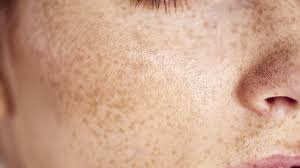
macule
flat, less than 1 cm, color change only (ex. freckle)
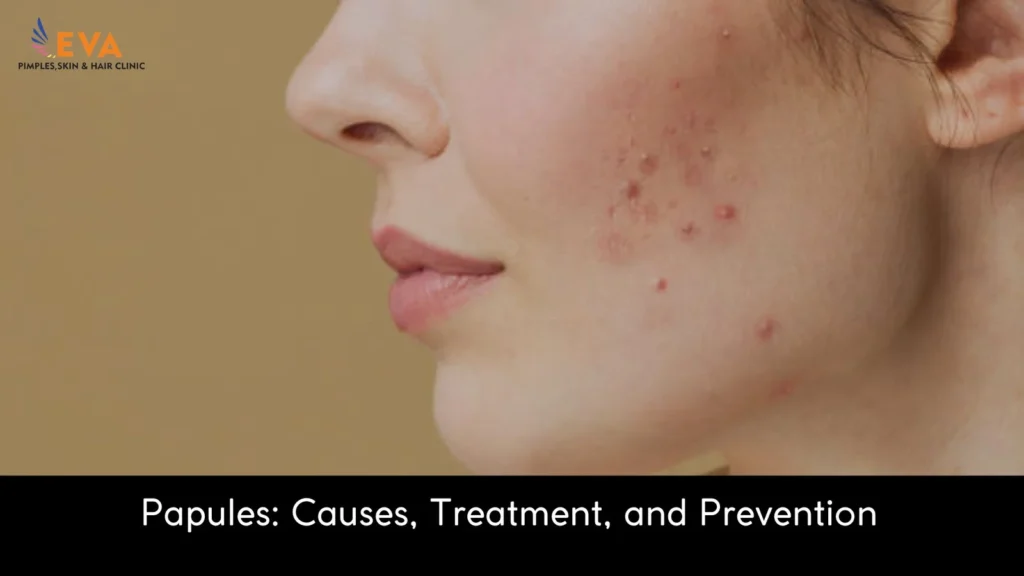
papule
raised, less than 1 cm, solid (ex. mole, wart)
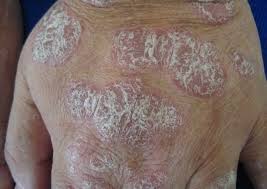
plaque
raised, greater than 1 cm, flatter, formed by coalescing (merging into one) papules (ex. eczema)
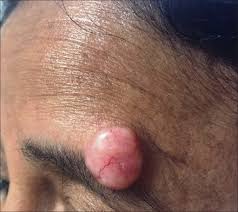
nodule
solid, elevated, greater than 1 cm, deeper (ex. fibroma)
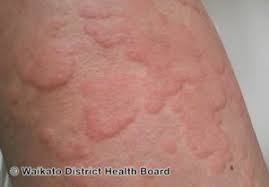
wheal
superficial, raised, temporary, irregular (ex. mosquito bite, hives)
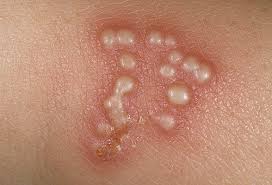
vesicle
elevated, less than 1 cm, filled w/ clear fluid (ex. herpes simplex, veracella)
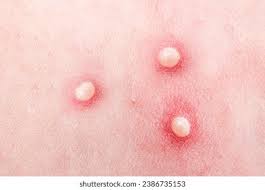
pustule
elevated, filled with pus (ex. acne, impetigo)
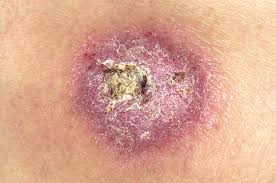
crust
dried exudate (serum, blood, pus) on surface (ex. scab after abrasion)
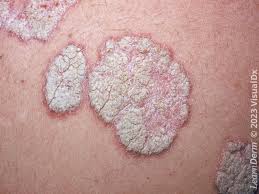
scale
flakes of dead keratinized cells (ex. psoriasis, dandruff)
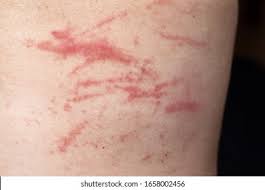
excoriation
self-inflicted superficial abrasion (scratches from itching)
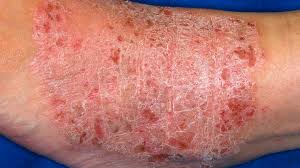
linchenification
thickened, rough skin from chronic scratching (ex. chronic eczema)
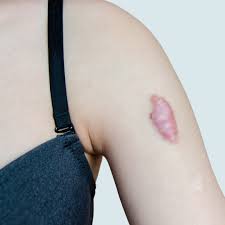
keloid
hypertrophic scar w/excess collagen (ear piercing scar)
ABCDE
asymmetry, border, color, diameter, elevation + enlargement
skin/lesion assessments
what is ABCDE used for
secondary lesions
crust, scale, excoriation, linchenification, keloid
alopecia
loss of hair, common abnormalities of hair
nail thickening
when nails thicken, common abnormality of nails
onycholysis
separation of nail from bed, common abnormality of nails
koilonychia
spoon shaped nail, common abnormality of nails
clubbing
sign of chronic hypoxia, nail base greater than 180 degrees, common abnormality of nails
beau’s lines
horizontal grooves in nail, common abnormality of nails
dyschromia
nail discoloration (happens after chemo), common abnormality of nails
emergency appraisal
airways, breathing, circulation
flatness (percussion)
very dense tissue (muscle, bone). “flat” sound
dullness (percussion)
more solid tissue (liver, spleen, heart), "thud” sound
tymphany (percussion)
enclosed air (stomach, intestines, cheek), “drum-like” sound
resonance
part air and part solid (normal lung tissue), “hollow” sound
hyperressonance
more air than normal (infant lung, hyper-inflated lung), “blooming” sound